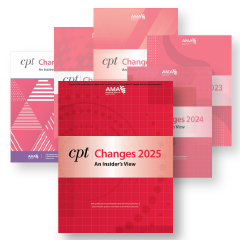by Find-A-Code™
Jul 21st, 2022
So, you are interested in being trained as a medical billing specialist. You have an affinity for numbers and records, and you think medical billing codes might be right up your alley. Well, there's good news. Medical billing jobs are plentiful right now. Just know that there is a lot to learn. For instance, there are at least seven types of medical codes you will have to learn to land a really good job.
Training will quickly reveal that there are literally hundreds of thousands of medical billing codes in use. Some of them are more prevalent than others; don't expect to memorize them all. Doing so is impossible, which is why services like ours exist. We maintain comprehensive medical code databases so that billing specialists can easily look up codes they aren't sure of.
At any rate, here are the seven types of medical codes every billing specialist needs to learn:
1. International Classification of Diseases (ICD)
Among the top two code catalogs the U.S. healthcare system relies most on is the International Classification of Diseases (ICD) catalog. The catalog is already in its eleventh iteration. Despite that, medical billers still utilize both the tenth and eleventh editions known as ICD-10 and ICD-11, respectively. ICD codes relate to diagnostic reporting. They identify diseases, injuries, chronic medical conditions, etc.
2. Current Procedural Terminology (CPT)
The second big code catalog is the Current Procedural Terminology (CPT) catalog. It is developed and maintained by the American Medical Association. CPT codes describe nearly every medical procedure. They cover diagnostic testing, surgical procedures, out-patient procedures, etc.
3. Healthcare Common Procedure Coding System (HCPCS)
Next up are Healthcare Common Procedure Coding System (HCPCS) codes. These codes are based on CPT codes and are primarily utilized by the Medicare system. They are also used for classifying medical procedures and tests.
4. Diagnostic-Related Group (DRG)
ICD, CPT, and HCPCS codes make up the bulk of the medical billing codes billing specialists deal with. The remaining four types of codes are used less frequently, including Diagnostic-Related Group (DRG) codes. These particular codes pertain mainly to hospital care. They determine hospital reimbursement rates based on average costs for treating a particular ailment or injury.
5. National Drug Code (NDC)
Even prescription and over the counter (OTC) drugs are represented by billing codes. Every time an insurance company reimburses a provider for a prescription, it does so based on the billing code provided. As a medical billing specialist, you will probably find yourself looking up National Drug Codes (NDCs) just as frequently as common diagnostic codes.
6. International Classification of Functioning, Disability, and Health (ICF)
The International Classification of Functioning, Disability, and Health (ICF) codes relate to disabilities and their impact on patient health and function. Once a disabling disease has been identified, these codes essentially describe how functional the patient is on a day-to-day basis.
7. Diagnostic and Statistical Manual of Mental Disorders (DSM)
This final type of medical code, known as Diagnostic and Statistical Manual of Mental Disorders (DSM), isn't utilized as much as it used to be. Since 2013, the American Psychiatric Association has recommended using ICD-10 over their DSM counterparts whenever possible. DSM was last revised in 2017.
Again, medical billing specialists are not expected to memorize all the codes in all seven categories. Doing so is just not possible. However, they are expected to have a working knowledge of each category so that they know how and where to look up codes as needed. We make that easier by offering a comprehensive database covering nearly every medical code in the business.


 Quick, Current, Complete - www.findacode.com
Quick, Current, Complete - www.findacode.com